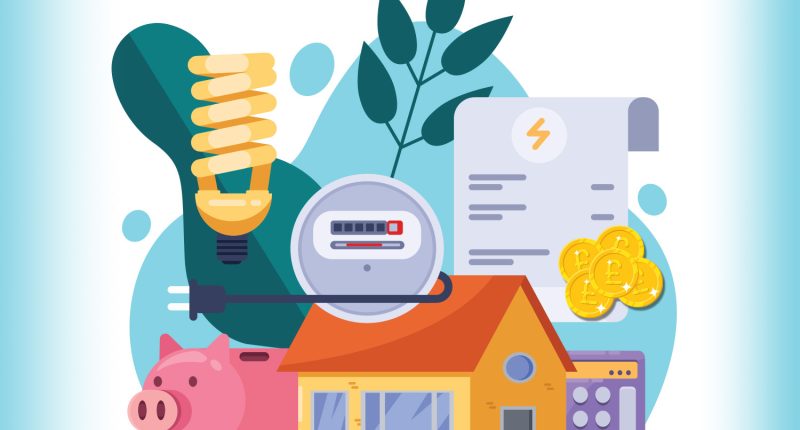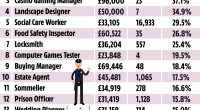ENERGY bills are set to rise by £94 a year for millions of households in the new year.
The energy regulator Ofgem has confirmed the new price cap, which comes into effect on January 1.
It means the average household will see their annual bill increase to £1,928, but the exact amount you pay depends on your usage.
The price cap changes every three months affecting households on default or variable tariffs.
Around 29million customers will see their bills change from the start of they year, and then again in April, July and October 2024.
The energy price cap works by setting a limit on the maximum amount suppliers can charge for each unit of gas and electricity.
Read more in money
That means despite the energy price cap averaging £1,834 right now, you might pay more or less than this amount, depending on how much you use.
We’ve spoken to energy experts Emily Seymour at Which? and Natalie Mathie at Uswitch to understand what could happen to prices next year.
Here’s everything you need to know – and what it means for your bills.
What will happen to energy bills in the new year?
The price cap will rise from £1,834, the lowest figure since March 2022, to £1,928 a year from January 1.
Most read in Money
This equates to a rise of roughly 5% rise, or an extra £7.83 a month, for a typical home.
The price of electricity will rise from 27.35p per kWh to 28.62p per kWh.
The unit rates for gas will rise from 6.89p per kWh to 7.42p per kWh.
In preparation for this change, Emily said that certain households should get an up-to-date meter reading in with their supplier.
“We’d recommend that people without a smart meter take a meter reading on or close to December 31 to make sure they pay the correct rates for units used before and after the price increase.
“If you don’t have a smart or prepayment meter you should be submitting frequent meter readings anyway, as this ensures you are only ever paying for what you’ve used and your energy company isn’t using estimated figures,” said Emily.
The next price cap will come into force on April 1 and will be revealed by Ofgem beforehand in February.
Will energy prices fall again from April?
Energy prices are predicted to come down a little in April, but overall bills aren’t predicted to drop significantly any time soon, according to Emily and Natalie.
Analysts at Cornwall Insight predict that prices will hover at around £1,800 for the typical household in 2024.
The latest forecast suggests that bills will fall to £1,816 a year for a typical household in April.
In July they are predicted to fall slightly further to £1,793 a year.
But typical bills could then rise back up to £1,833 a year from October 2024.
But these are just forecasts based on what experts think might happen.
There’s no guarantee on what might happen, as wholesale energy prices are affected by many things, and could still go up or down depending on world events.
Natalie said: “The energy market remains volatile, so it can be hard to predict whether opting for a fixed deal or sticking with a standard variable tariff will be cheaper in the long run.”
These volatilities arise from global concerns including disruptions to a North Sea oil pipeline and wars in Ukraine and Gaza.
Industrial Action at gas production facilities in Australia has also contributed to wholesale market volatility, according to Cornwall Insight.
Will fixed deals be more attractive next year?
Customers who lock into a fixed energy deal are charged the same gas and electricity rates during the term of the contract.
This means that prices will stay the same throughout and customers won’t face large bill hikes if Ofgem were to increase the price cap.
But if Ofgem were to lower the price cap you might not be able to switch back to this without paying a hefty exit fee.
Emily said: “Whether fixing is right for you will depend on your individual circumstances – unit prices are predicted to come down slightly in April but standing charges will go up.
“Unless you’re a very low energy user, then with unit prices still so high, and likely to come down slightly relatively soon, for many it will not be wise to fix a deal at these current prices.
“As a rule of thumb, we wouldn’t recommend fixing anything higher than the unit rates or standing charges in your current deal or for longer than a year.”
Natalie added: “If you’re thinking of switching to a fixed deal, pay attention to any exit fees – which can cost up to £200.
“If you change your mind after the cooling-off period or spot a better deal you wish to switch to, you may need to pay to leave.
“The price you are quoted to pay through direct debit each month is an estimate based on your predicted usage and may not end up being the actual cost over the whole year.
“Remember, if you use more energy, you’ll pay more.”
What energy bill help can I get this winter?
Thousands of households are due up to £25 in free cash after cold weather payments were triggered in hundreds of postcodes.
The Department for Work and Pensions (DWP) hands out the free cash to help support hard-up Brits during cold spells.
And eligible households get the cash paid directly into their bank accounts within 14 days.
The cold weather payments are made in locations where residents experience continuous below-zero weather.
Households can get £25 during each seven-day period of low temperatures from now until March 31.
Cold weather payments have been triggered in over 300 postcodes so far in November – meaning that thousands of households are owed cash.
Plus, millions are due up to £600 in winter fuel payments.
You should have received yours by January 26, 2024 at the latest.
If you haven’t got your payment by then, you need to call the office that pays your benefits.
Those details can be found in the letters they have sent you.
And if you’re found to be ineligible for the winter fuel payment but want to challenge that decision, there’s a government form for that, too.
Millions on benefits will also receive the final £299 cost of living payment in February.
Read more on The Sun
We’ve previously explained who’s eligible and whether you’ll need to act to get it.
Additional support is also offered by councils in the UK through the Household Support Fund.










